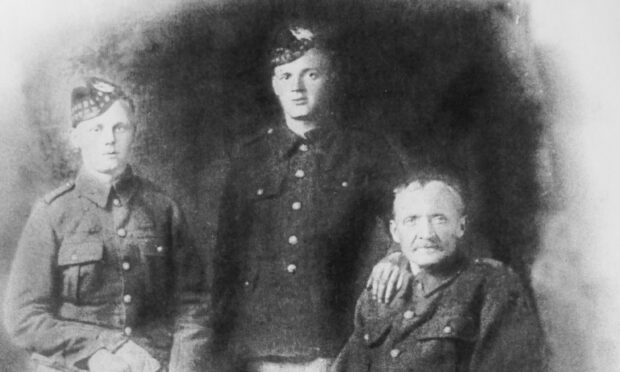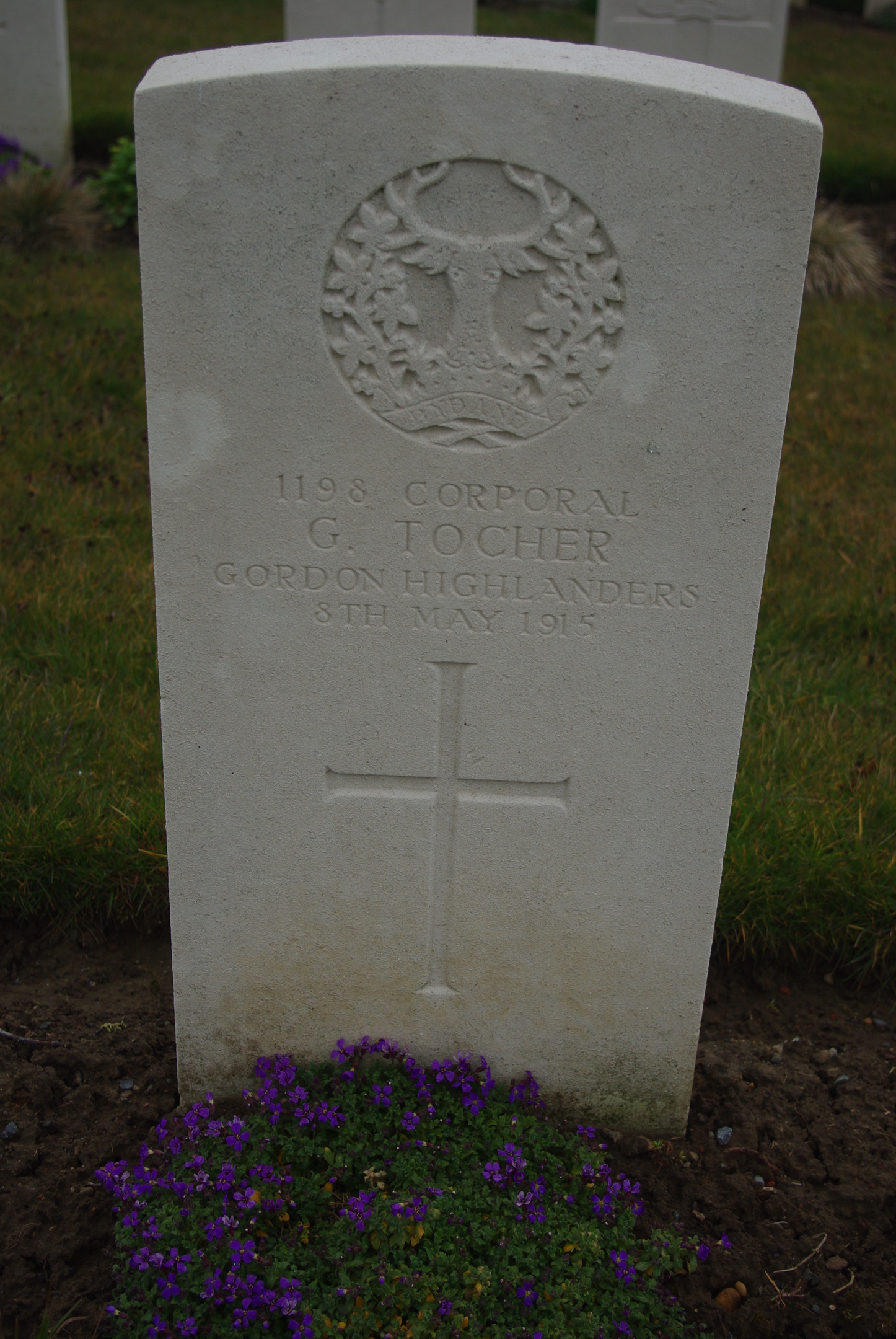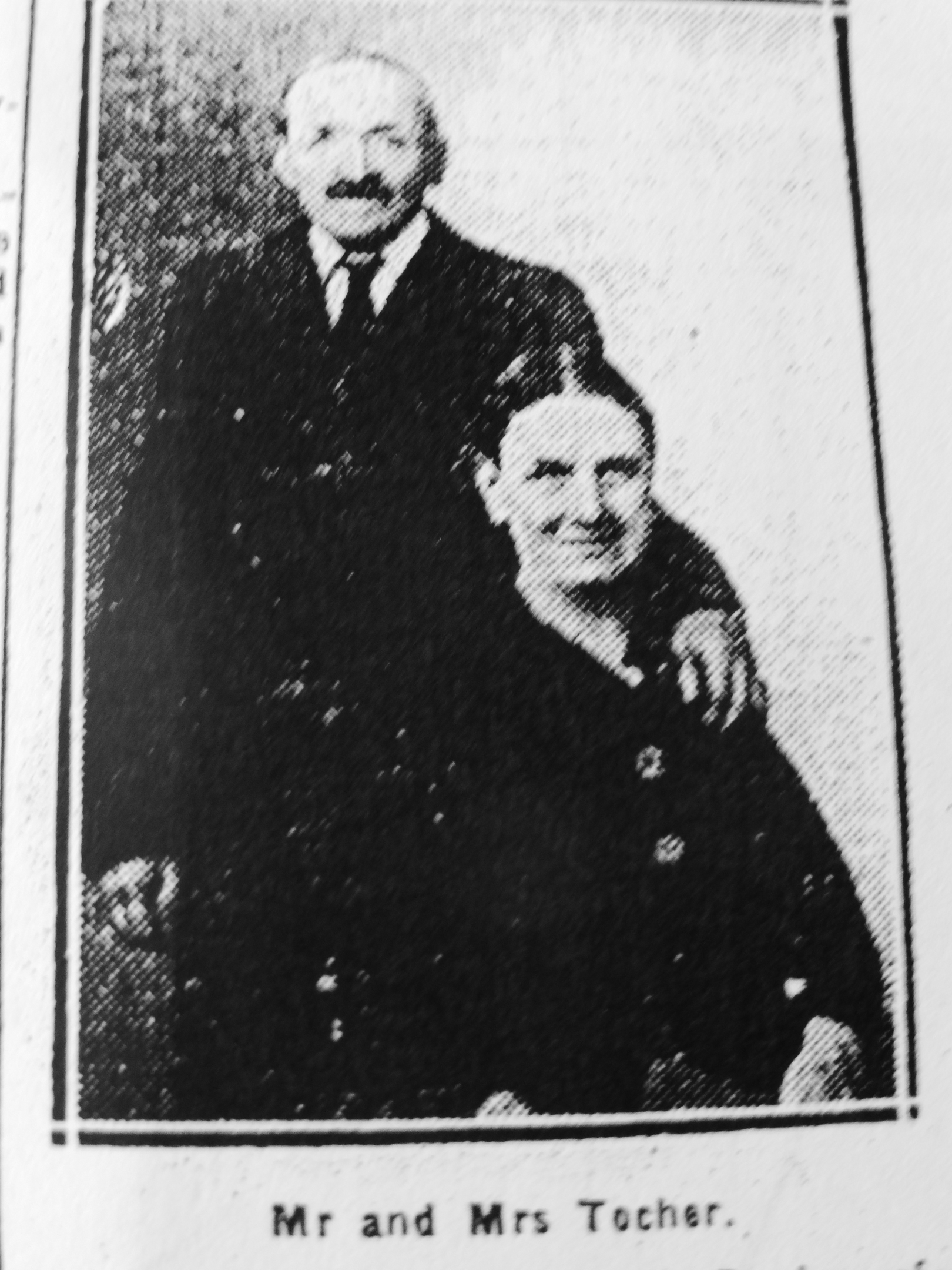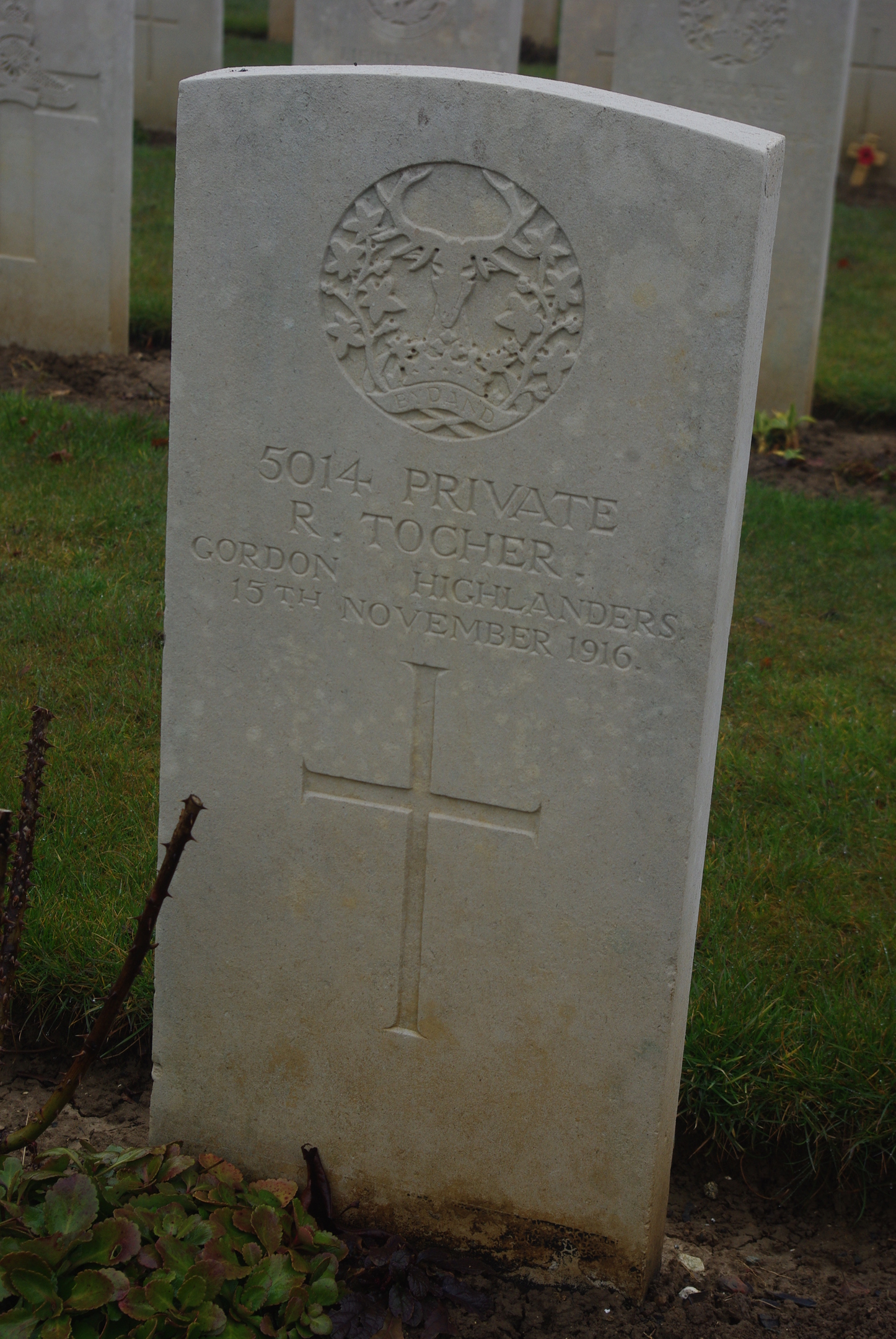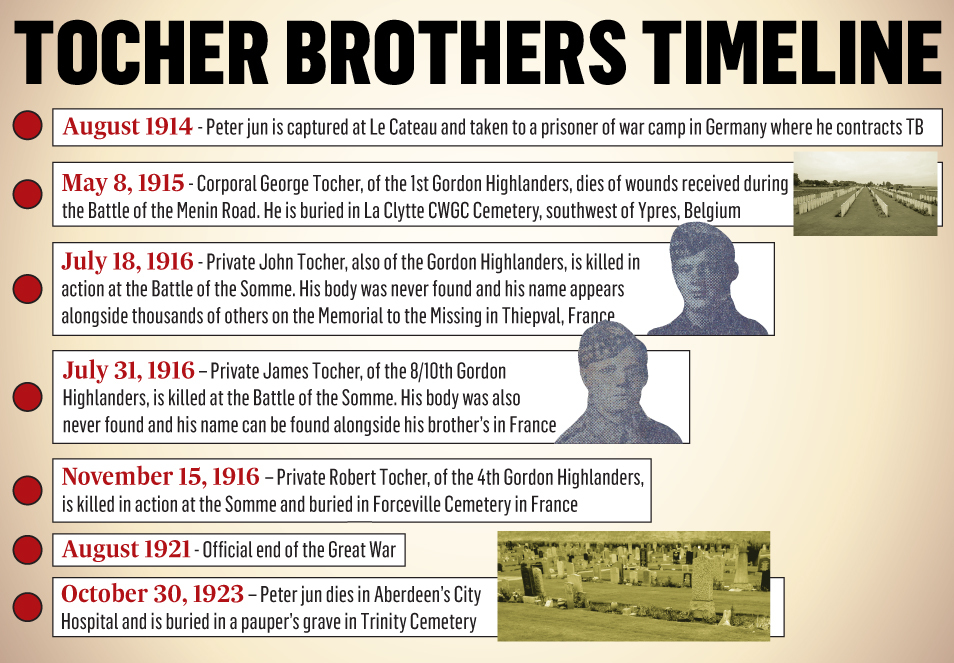The loss that families experienced during World War I was immeasurable.
It was an excruciating loss that was felt by mothers and fathers across the globe as their sons left for the war and many never returning.
It was a loss that was felt none more so by the Tocher family, of Rosemount, Aberdeen, who lost not one, but five sons to those four years of violence.
All five served with The Gordon Highlanders and now two of them lie in cemeteries in France, two of their bodies were never recovered and one was buried in a pauper’s grave in Aberdeen.
It is a truly tragic story and one that many will not have heard about. But after hearing about it for the first time, it propelled Colin Johnston, a retired history teacher from Culter, into action.
The 65-year-old said: “I had heard of families during the Great War losing several sons and other relatives, including ‘father/son’ combinations. One pupil of mine at Bridge of Don Academy, many years ago, told me that her maternal grandmother’s family lost all four boys.
“But I had heard Anne Park, who works both at the Family History Society on King Street and The Gordon Highlanders Museum, speaking one day about the opening of the Aberdeen War Memorial in 1925 and she had mentioned that part of the official party that day had been Peter and Elspet Tocher.
“When she told me the reason – that the family had lost all five sons – I became determined to find out what happened to them and to see if there was any chance of connecting up with any present-day relatives.”
It was a journey that initially led Colin to many dead ends until a chance conversation with another friend from the museum. He said his friend, Ken Mills, had been allocated as the host for a group of visitors to the museum who mentioned their family had lost five sons during the war.
Through another friend at the museum, Colin managed to get a contact address of the person who had booked the visit, and through her, was able to contact a relative of the Tocher boys, through the line of one their three sisters who, up to that time, Colin hadn’t realised had existed.
“I suppose, in a way, it’s through my instincts as someone who likes to investigate events in the past and tries to find hitherto unknown facts that I have found this a most satisfying experience, especially since I have been able to help other people find out something more about their family background,” he said.
Through his research – along
with others including Anne Park,
Bert Innes and George Campbell – they have discovered lots about this
Aberdeen family although many gaps still remain.
One of the things they managed to uncover was the effect the devastating loss had on the parents, Peter sen and Elspet, of 58 Hutcheon Street, Aberdeen, specifically on the father.
“We discovered that the father joined up after the death of three of his sons sometime in 1916 with the avowed intention of killing as many Germans as he could find,” Colin said.
“Luckily, in an almost Saving Private Ryan type situation, the military authorities heard about what had happened and Peter Tocher was apprehended at Calais and prevented from going any closer to the fighting areas.
“He worked in a labour battalion there until the war was over. During this time, he was to learn of the death of another of his sons.”
Not much is known about how Peter sen managed to enlist in the Army – whether he lied about his age or used contacts to get into it – nor is it clear how the military forces uncovered his plan. But what is clear is just how badly affected this man was by the death of his sons.
After the war, the parents were dealt another blow when the eldest son, Peter jun, who by this time had been transported to Aberdeen’s City Hospital, died in 1923 after spending most of the war in a prisoner of war camp.
While his brothers all have memorials commemorating their sacrifice, Peter’s death after the official end of the war meant he was not entitled to a Commonwealth War Graves Commission headstone.
“The family were poor in the 1920s and there was no cremation service then, so Peter was placed in an unmarked area in Trinity in a ‘pauper’s grave’,” Colin explained.
“Given the immense loss and suffering the whole family must have experienced; given the fact that the bodies of two of the boys were ‘lost’ and have no grave, and given that the graves of the other two are a long way away in Belgium and France, I thought that it would be a good thing if there were some kind of memorial to the sacrifice of at least one of the boys in his home city.”
And so with the help and generosity of Barry Mackland at Memorial Specialists and Ian Burnett, of the Aberdeen City Council Bereavement Department, the group plans to erect a headstone in Trinity Cemetery to commemorate the Tocher boys.
A special unveiling will be held in August with the relatives of the family attending.
Colin added: “Unless one experienced conditions on the Western Front during the Great War, no one can ever fully appreciate what it would have been like for the men out there – on both sides.
“Nor, unless you have visited the Western Front now, can one ever learn fully to appreciate the powerful, metaphysical ‘pull’ that this region of the world possesses and why it is such a unique experience just being there.
“This must have been an awful time for Peter and, of course, his wife back in Aberdeen – four sons known to have died (though two were ‘missing in action’) and a fifth in a German PoW Camp.
“The sense of not knowing what had happened to two of their boys and what was happening to one of the others must have been indescribably hard to bear.”
